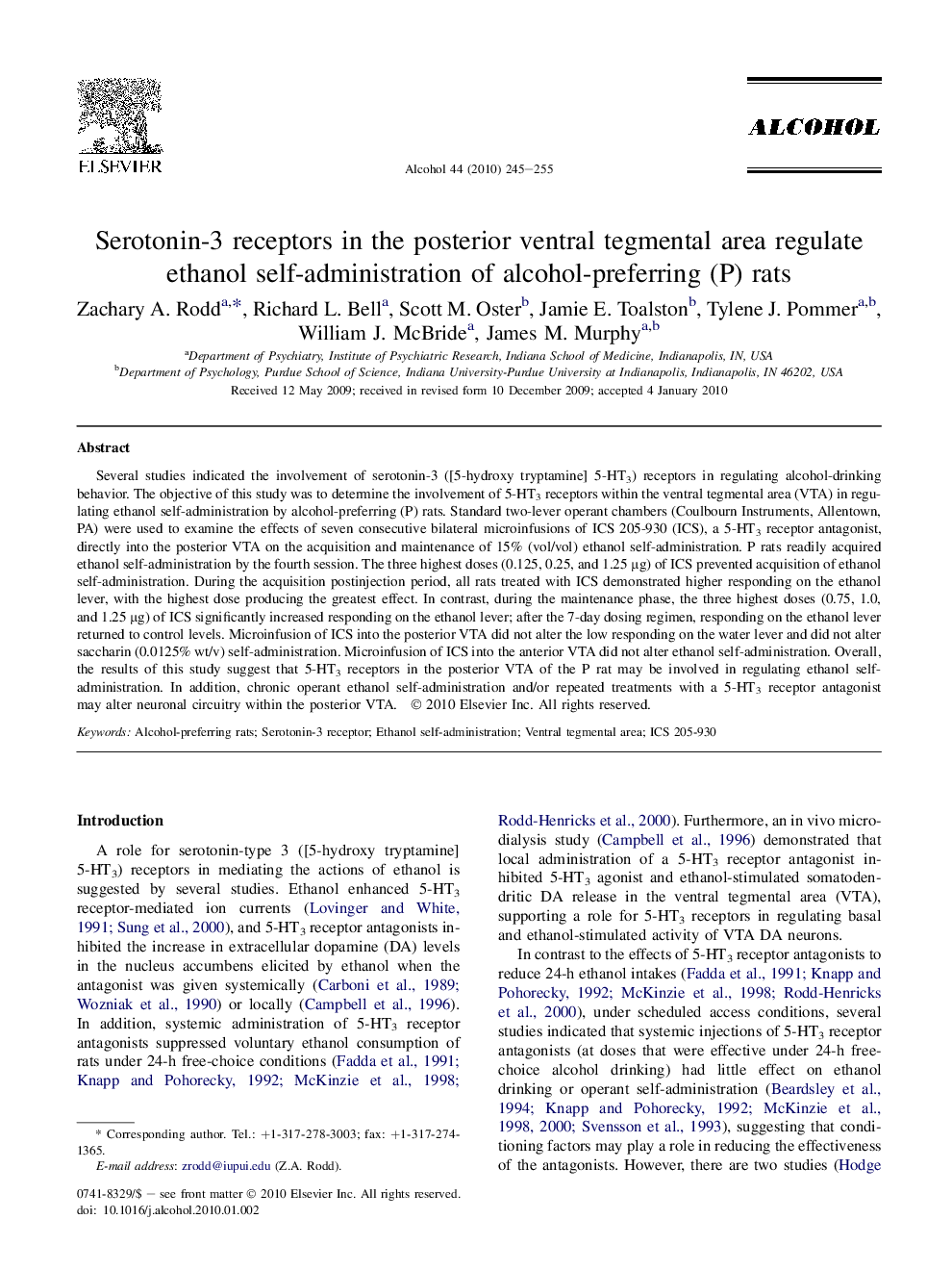| Article ID | Journal | Published Year | Pages | File Type |
|---|---|---|---|---|
| 1067816 | Alcohol | 2010 | 11 Pages |
Several studies indicated the involvement of serotonin-3 ([5-hydroxy tryptamine] 5-HT3) receptors in regulating alcohol-drinking behavior. The objective of this study was to determine the involvement of 5-HT3 receptors within the ventral tegmental area (VTA) in regulating ethanol self-administration by alcohol-preferring (P) rats. Standard two-lever operant chambers (Coulbourn Instruments, Allentown, PA) were used to examine the effects of seven consecutive bilateral microinfusions of ICS 205-930 (ICS), a 5-HT3 receptor antagonist, directly into the posterior VTA on the acquisition and maintenance of 15% (vol/vol) ethanol self-administration. P rats readily acquired ethanol self-administration by the fourth session. The three highest doses (0.125, 0.25, and 1.25 μg) of ICS prevented acquisition of ethanol self-administration. During the acquisition postinjection period, all rats treated with ICS demonstrated higher responding on the ethanol lever, with the highest dose producing the greatest effect. In contrast, during the maintenance phase, the three highest doses (0.75, 1.0, and 1.25 μg) of ICS significantly increased responding on the ethanol lever; after the 7-day dosing regimen, responding on the ethanol lever returned to control levels. Microinfusion of ICS into the posterior VTA did not alter the low responding on the water lever and did not alter saccharin (0.0125% wt/v) self-administration. Microinfusion of ICS into the anterior VTA did not alter ethanol self-administration. Overall, the results of this study suggest that 5-HT3 receptors in the posterior VTA of the P rat may be involved in regulating ethanol self-administration. In addition, chronic operant ethanol self-administration and/or repeated treatments with a 5-HT3 receptor antagonist may alter neuronal circuitry within the posterior VTA.
